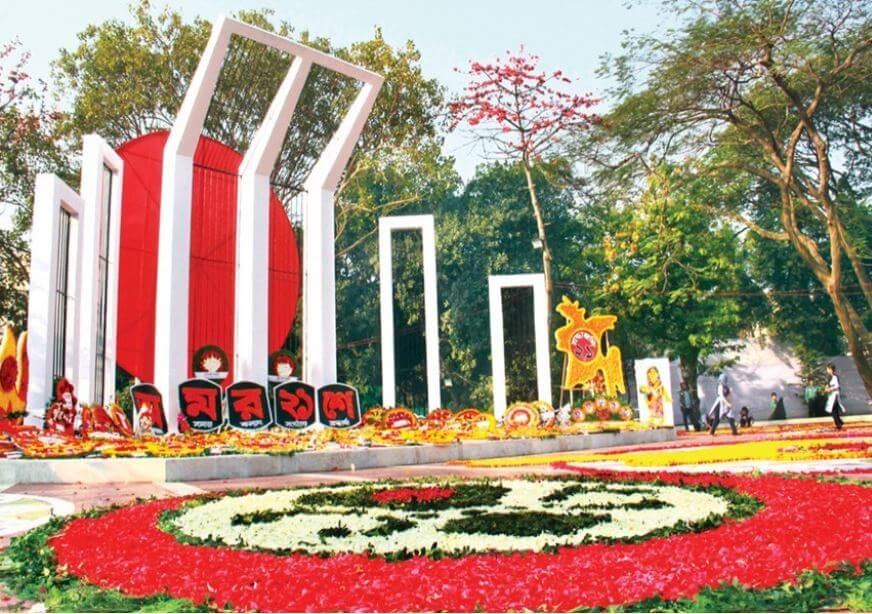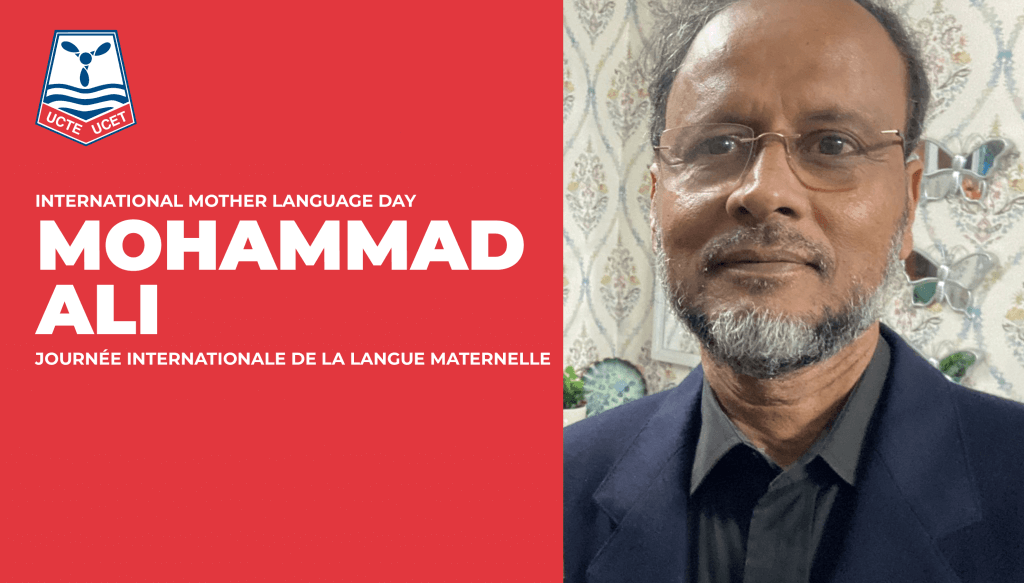International Mother Language Day – A Touching Story by Captain Mohammad Ali
International Mother Language Day, proclaimed by UNESCO in November 1999, is celebrated on February 21, every year. One of our members took the time to explain the importance of this day and to tell us about his personal experience. Mohammad Ali, Vice President of Local 60604 in Saint John, New Brunswick, a Ship’s Captain (Master Mariner), presently working with Transport Canada Marine Safety, is originally from Bangladesh. He let us know that International Mother Language Day was dedicated as a tribute to the language movement of the Bengali spoken people, now Bangladeshis (then East Pakistanis), and took the time to explain the history as well as the importance of celebrating this day.
First, Captain Mohammad Ali revealed that everything started with the creation of Pakistan in 1947. The country was divided into two geographically distinct parts, East Pakistan (now known as Bangladesh) and West Pakistan (now known as Pakistan), with very different cultures and languages. In 1948, the Pakistani government took the decision to declare Urdu as the only State language of Pakistan, even though Bengali (Bangla) was spoken by the majority of people in the country. It should also be noted that Bengali (Bangla) is still spoken by more than 300 million people worldwide, the sixth most spoken language in the world.
It was following this announcement in 1948 that the protests broke out. The people of then East Pakistan demanded that Bengali be one of the national languages, as Bengali spoken people were more in numbers. To stop the protests, the government banned public meetings and rallies. The students at Dhaka University organized various rallies and other meetings to oppose this decision. On February 21, 1952, during one of these demonstrations, police opened fire, killing many people in the Dhaka University and Dhaka Medical College campus, among them 5 were officially recognized as the language movement martyrs.
“I was not yet born when it happened, but I had my parents and grandparents to tell me the story of this demonstration which would forever mark our history. It was a power struggle. We only wanted everyone to be respected, equal representation, fair share and able to preserve our culture and mother tongue. “
In my youth in Bangladesh, we used to go to the Shaheed Minar (Martyr’s Monument) in the early morning on 21st February each year to commemorate events, to show mark of respect. ‘’Shaheed Minar’’ a monument built in memory of the people who lost their lives fighting to gain this right to speak in our Mother tongue in traditional dress, we would bring flowers to the monument and in silence place them on the floor to honour the leaders of this movement. We would sing a special song that we still sing in our mother tongue – songs relating to this part of our history,” says Mohammad Ali.

Shaheed Minar (Martyr’s Monument)
During the pandemic, Brother Ali met with people in his community through Zoom. Those Bangladeshi in Canada still pay tribute to their ancestors, celebrate this day to show their respect to their history/culture/heroes.” Our culture and language are immensely valuable. Our identity is rich in traditions, which must be respected, and passed on to the next generations.” Since February 21, 2000, the declaration of the “International Mother Language Day “has been a tribute to the Bangladeshi (then East Pakistani) language movement. Such commemoration, recognizing acts of bravery, shows respect for one another’s history. “It is in our hearts and yours”, says Mohammad Ali. UCTE is touched by Brother Ali’s story. We are fortunate to have him with us.
